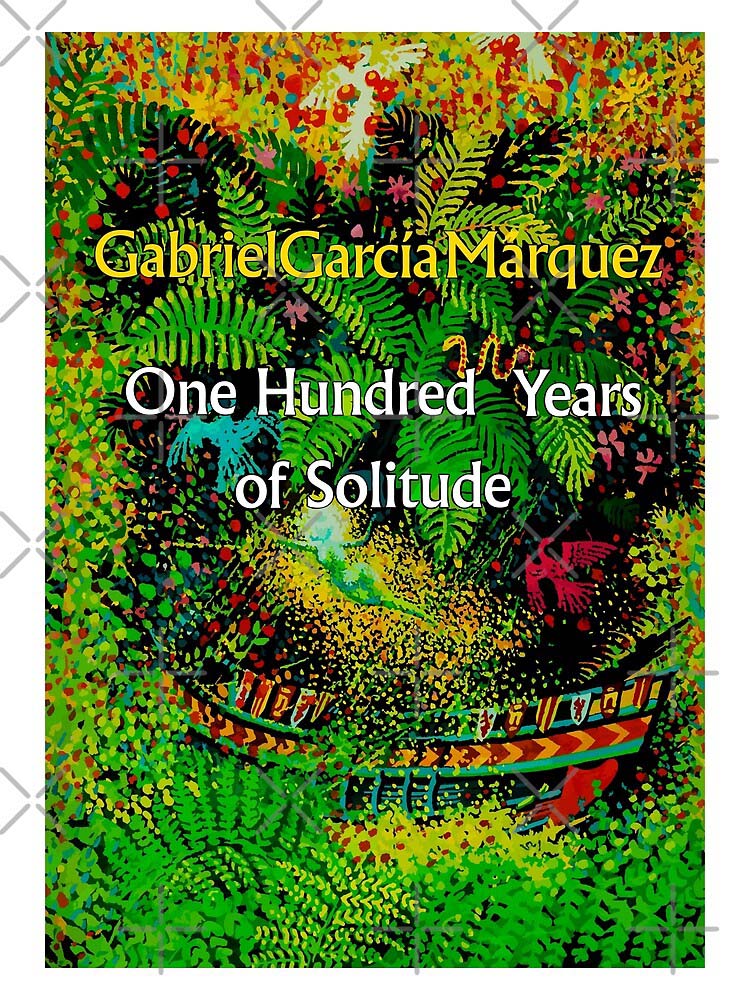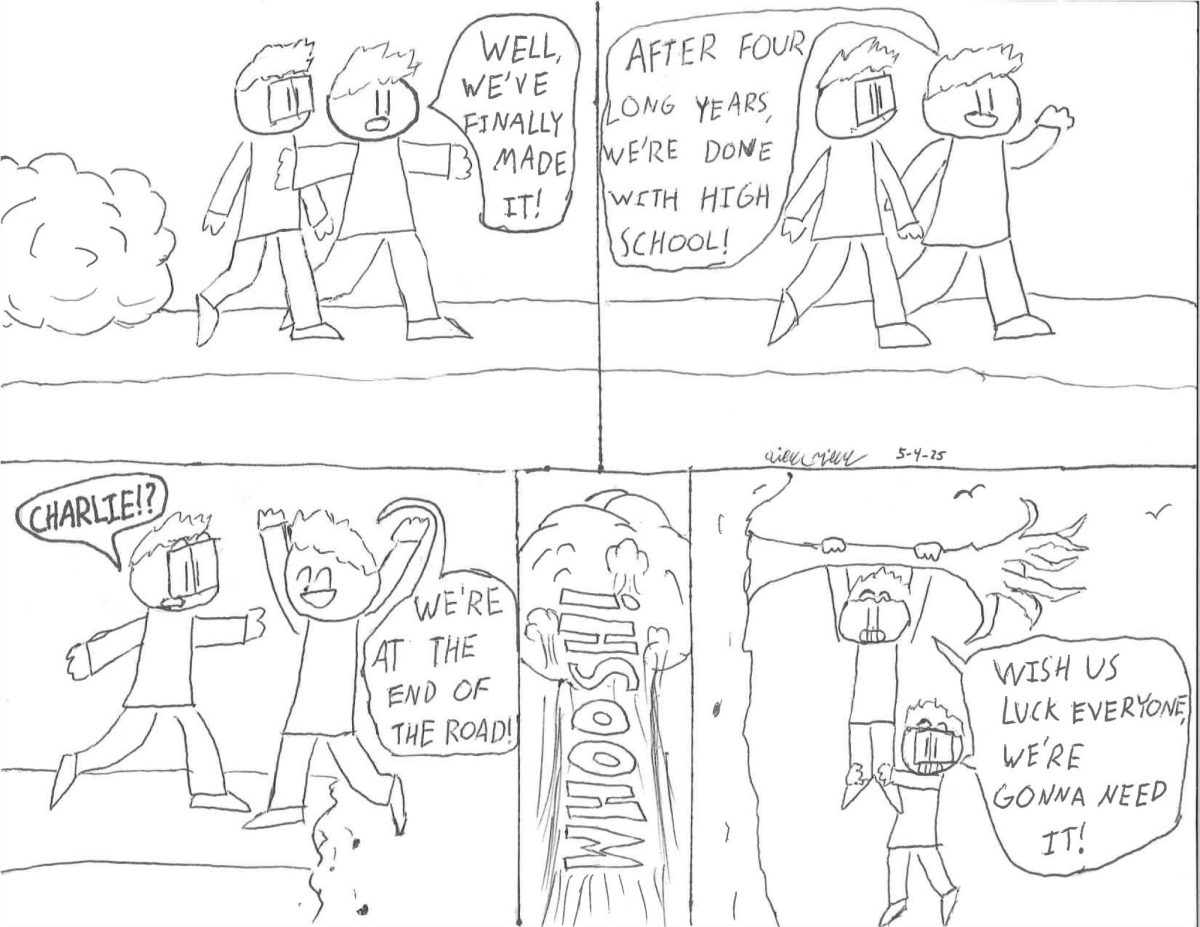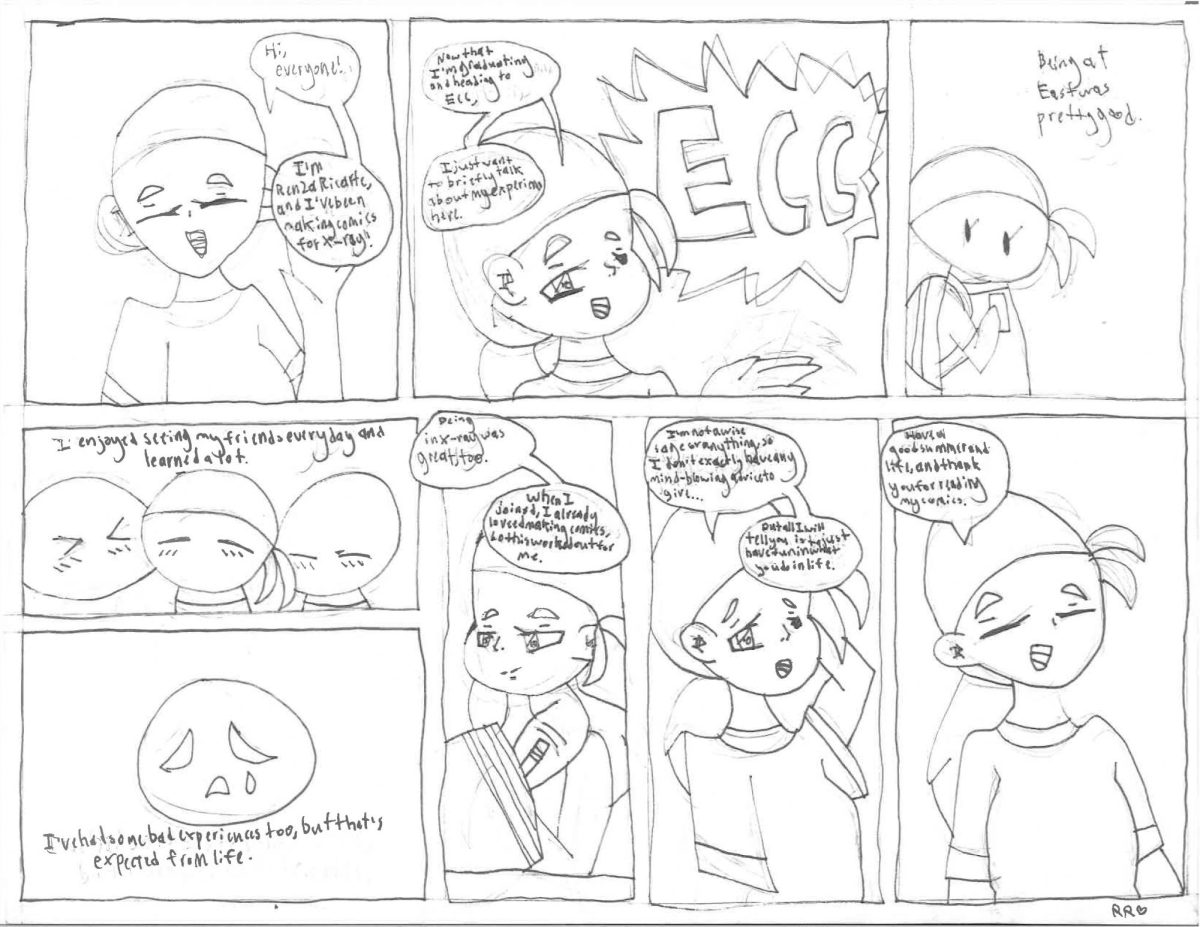“One Hundred Years of Solitude’’ by Gabriel García Marquez follows the isolated imaginary town of Macondo in Northern Colombia as we follow the rise and fall of the Buendia family. This book is known for its wide variety of magical realism that is meant to be captivating and unreal—from a mechanic that is always surrounded by yellow butterflies to yellow flowers falling from the sky representing the mourning of someone’s death.
“Many years later, as he faced the firing squad, Colonel Aureliano Buendia was to remember that distant afternoon when his father took him to discover ice.” This opening nearly expresses “100 Years of Solitude” in one sentence. The words “many years later,” “many days later” and “many months later” are recycled so much throughout this book that it makes you question time and the way time is expressed in books. Time is one of the most important aspects of this book; time in the story acts as a clock, and this opening sentence acts as the beginning of the first turn of the clock—the first chapter of someone’s life.
Throughout the story, García incorporates peculiar aspects that one wouldn’t find in most stories and brings awareness to actual Colombian history. García acknowledges the gravity of insomnia and treats it as less of a sleep disorder and more of an effective plague that affects the whole town of Macondo. At first, the characters in the book simply start to forget things due to lack of sleep. However, eventually, even the system the characters implement to aid their memories turns into a scrambled mess as their loss of memory increases.
Aside from the internal familial conflicts, there is a very long war that affects Macondo in many different ways, and we see it through the eyes of the Buendia family. However, towards the end of the war, García reveals that those involved were not fighting for freedom as they previously thought. This led to a big gust of betrayal amongst Macondo because the people involved weren’t focused on the citizens’ freedom but rather on political hierarchy. García includes the Banana Massacre, which was a part of Colombian history, in his book as well. The Banana Massacre occurred in 1928 when workers, a part of the United Fruit Company, killed 2,000 people due to the company’s refusal to negotiate with its workers regarding working conditions. García didn’t hold back when it came to disturbing aspects of this massacre, bringing full awareness to the subject. This book throws beautiful language at the reader that does a wildly successful job of capturing the reader’s attention.
I’ve heard great things regarding this book, which is why I decided to pick it up. The aspect of a story regarding the eyes of a family tree in a small, secluded town seemed so minute and non-impactful that I just had to see for myself. Reading this book was extremely hard and, at some points, seemed impossible—from the density of the writing to the fact that the book was translated from Spanish to the often very long sentences. But reading this with an open mind, trusting myself, and doing reasonable research made things so much easier. The fact that some parts of the story were “impossible” makes me want to go back and read it again to add closure to some of the dead ends. I had no concept that this would soon blossom into one of my favorite books of all time. The characters were unforgettable—even though they all had the same name, making it even more confusing (which I soon realized was García’s motive). However, when I think of my favorite character, Rebecca sticks out. The unique aspect of Rebecca’s actions was that she came to Macondo carrying a small bag that contained her parents’ bones because she refused to bury them. Whenever she was stressed or upset, she’d eat dirt—which grew into a nasty habit for her. Rebecca was by far the most distinctive character throughout the story that couldn’t be forgotten, drawing me even closer to the novel.
Some parts of the story that seemed unnecessary were things that I soon realized were all intentional by the author—for example, the aspect of everyone’s name being the same. García reveals why learning history and staying in touch with family is important: so you’re not cursed to repeat it. This book was very challenging; however, it was so refreshing to finish it. The language was very complicated, so I’d recommend checking out this book if you are someone who is up for a challenge but also beautiful, unforgettable language. Some of my takeaways from the book are as follows: explore the world and branch out from your family, but also keep in mind that reminiscence and history are everything, and sometimes solitude is a good thing. Being in those conditions can help you get to know yourself.









